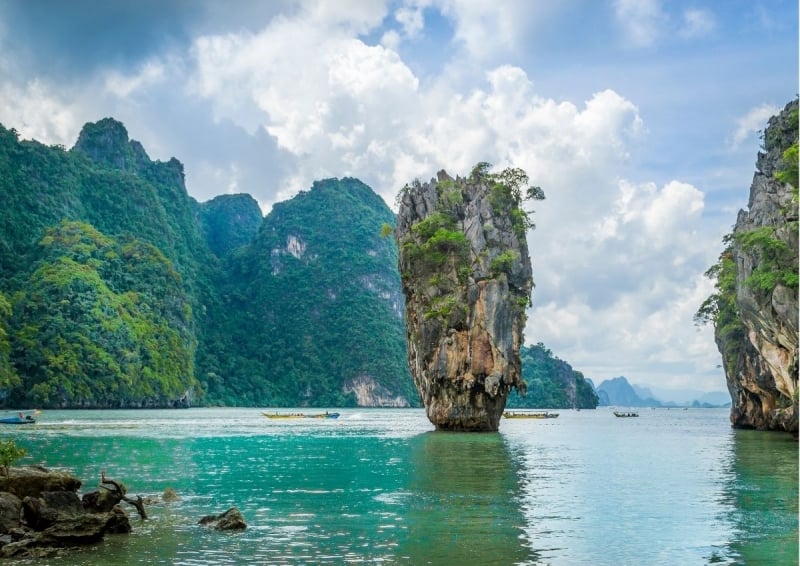Imagine gliding through the turquoise waters of Ha Long Bay, exploring the vibrant night markets of Bangkok, and trekking through the lush rainforests of Borneo, all with a single visa. This dream scenario could soon be possible as Thailand pushes a revolutionary plan for six countries in Southeast Asia (Thailand, Cambodia, Laos, Vietnam, Malaysia, and Myanmar): a Schengen-like visa system.
Inspired by the ease of travel within the European Schengen area, Thailand envisions a similar system for Southeast Asia, allowing tourists to obtain a single visa that grants access to multiple countries in the region.
Also read: Thailand Introduces New Medical Coverage Scheme for Tourists
Why Thailand is pushing for a Southeast Asian Schengen visa

Image credit: chrisinthai via Canva Pro
Thailand’s tourism industry is a significant contributor to its economy. Having been hit hard by the pandemic, Thailand wishes to reignite the tourism sector, with the government setting an ambitious target to attract 80 million tourists by 2027. The proposed Southeast Asia visa is a key strategy to achieve this goal.
Benefits for tourists and the six countries
A single visa for these countries across the region offers a multitude of advantages for tourists:
- Simplified travel: Let’s face it, multiple visa applications and fees are a hassle. So just imagine the seamless process upon travel when you get a hold of this Schengen visa.
- Unlocking diverse experiences: From the historical spots of Vietnam to the idyllic beaches of Thailand, Southeast Asia indeed boasts a kaleidoscope of experiences. With a single visa, travellers get to unlock a treasure trove of tourist spots and hidden gems, promoting regional exploration.
- Targeting high-spending tourists: The Schengen visa is envisioned to attract affluent tourists seeking extended luxury vacations in multiple countries, generating significant revenue for nations in Southeast Asia.
Also read: Post-Pandemic Tourism Sees an Increasing Demand for Luxury & Sustainable Travel
Challenges and considerations to take note of
While the proposal is promising, there are still quite a few challenges to consider:
- Varying visa regulations: Each Southeast Asian nation has its own visa policies and fees. Applying the Schengen-style Southeast Asia visa required collaboration and compromise among these countries and their proposed policies.
- Security concerns: Security is crucial, and standardising security protocols across six countries is important to ensure a robust visa system.
- Implementation timeline: The logistics and infrastructure development for this system could take time.
Current initiatives and what lies ahead for this vision

Image credit: Foto_iM via Canva Pro
Thailand has already begun laying most of the groundwork. The government recently signed a visa waiver agreement with China, its biggest tourist market, and also offered temporary waivers to travellers from India, Taiwan, and Kazakhstan. Discussions with neighbouring countries regarding the Schengen visa are also underway.
The success of this initiative hinges on regional cooperation. If these Southeast Asian nations can overcome the hurdles of reconciling differences into a single visa for tourists, then it has the potential to transform tourism in the region.
Also read: What Are the Best Remote Destinations in Southeast Asia?
So, will a Schengen-style Southeast Asia visa become a reality? Only time will tell. As a traveller yourself, let us know your thoughts on this new initiative.
Featured image credit: carmengabriela via Canva Pro






